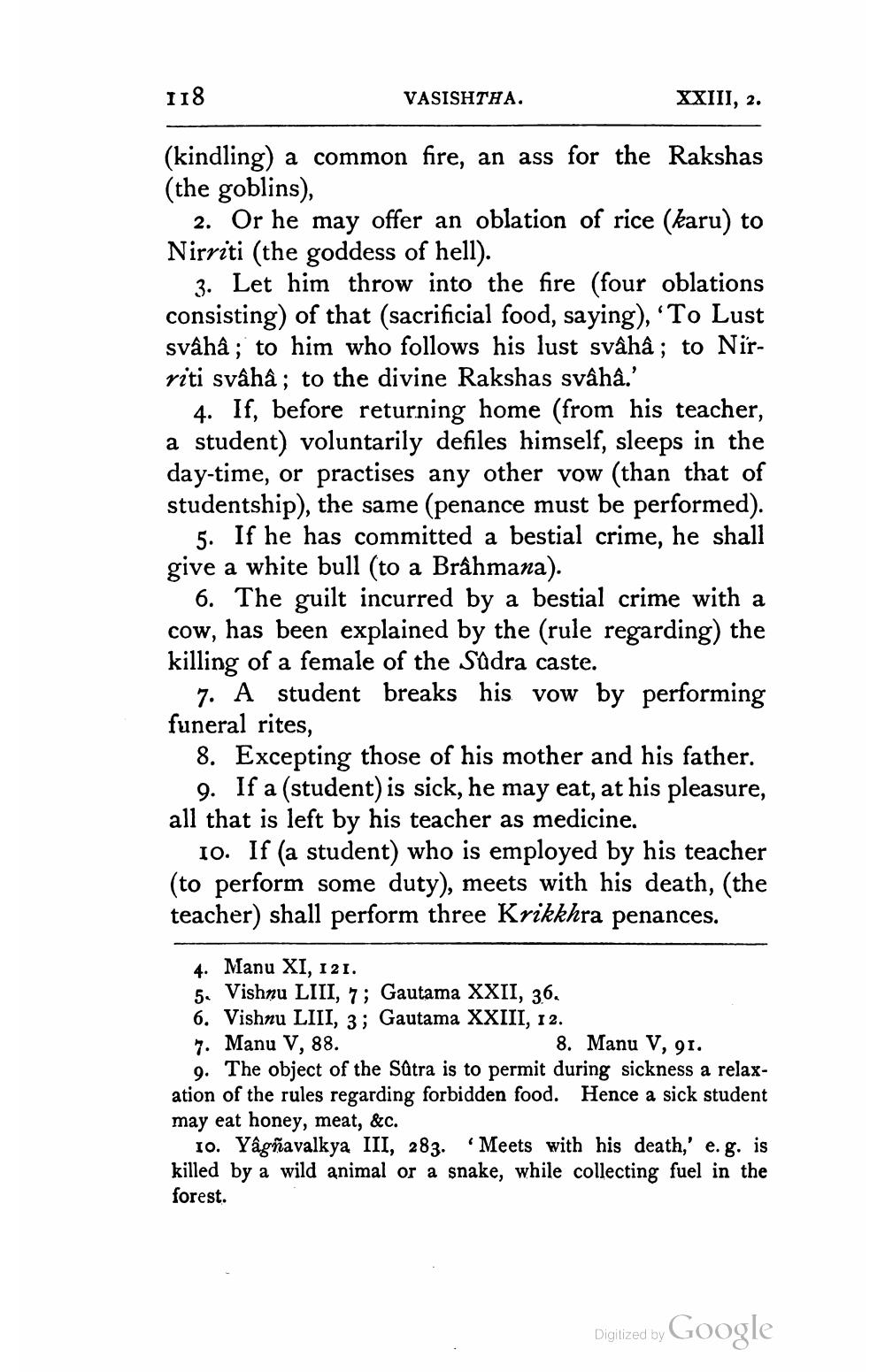________________
118
VASISHTHA.
XXIII, 2.
(kindling) a common fire, an ass for the Rakshas (the goblins),
2. Or he may offer an oblation of rice (karu) to Nirriti (the goddess of hell).
3. Let him throw into the fire (four oblations consisting) of that (sacrificial food, saying), "To Lust svâhâ ; to him who follows his lust svâhâ ; to Nirriti svâhâ ; to the divine Rakshas svâhâ.'
4. If, before returning home (from his teacher, a student) voluntarily defiles himself, sleeps in the day-time, or practises any other vow (than that of studentship), the same (penance must be performed).
5. If he has committed a bestial crime, he shall give a white bull (to a Brâhmana).
6. The guilt incurred by a bestial crime with a cow, has been explained by the (rule regarding) the killing of a female of the Sadra caste.
7. A student breaks his vow by performing funeral rites,
8. Excepting those of his mother and his father.
9. If a (student) is sick, he may eat, at his pleasure, all that is left by his teacher as medicine.
10. If (a student who is employed by his teacher (to perform some duty), meets with his death, (the teacher) shall perform three Krikkhra penances.
4. Manu XI, 121. 5. Vishnu LIII, 7; Gautama XXII, 36. 6. Vishnu LIII, 3; Gautama XXIII, 12. 7. Manu V, 88.
8. Manu V, 91. 9. The object of the Sätra is to permit during sickness a relaxation of the rules regarding forbidden food. Hence a sick student may eat honey, meat, &c.
10. Yagñavalkya III, 283. Meets with his death,' e. g. is killed by a wild animal or a snake, while collecting fuel in the forest.
Digitized by Google




